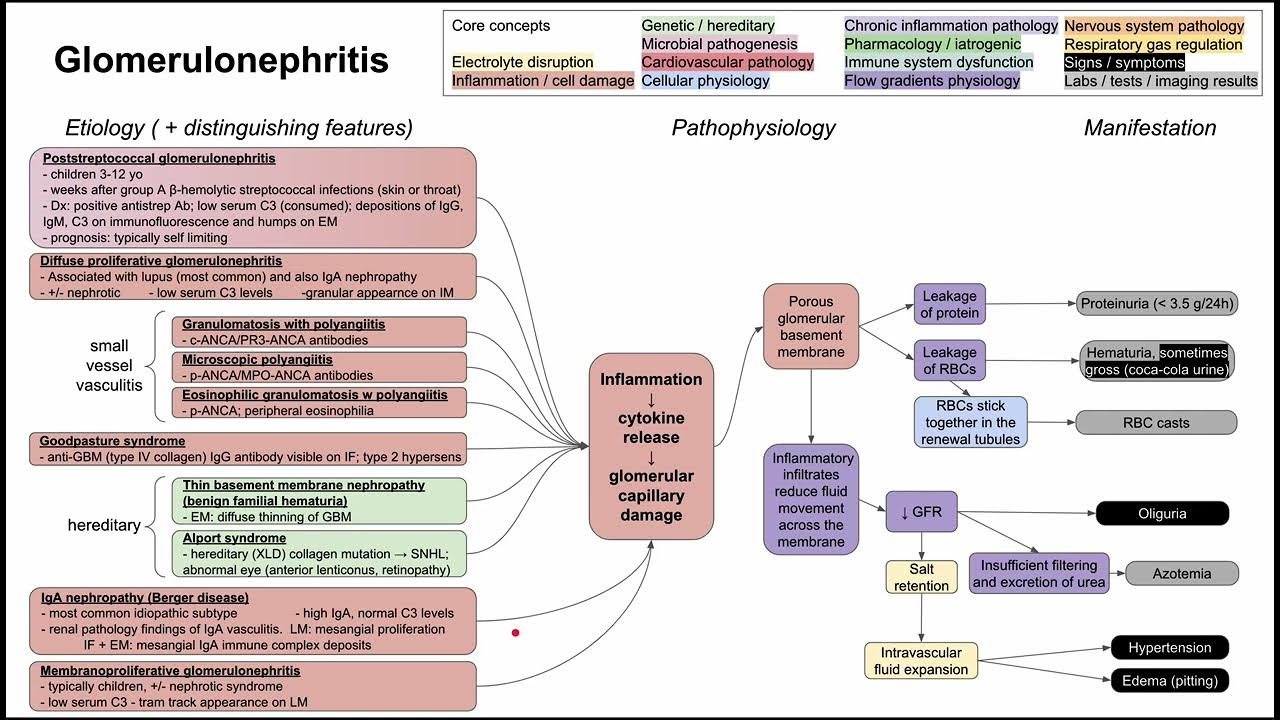This Vitamin Stops Proteinuria Fast And Repair KIDNEY Quickly!
Summary
TLDRThis script highlights the potential of vitamin D in mitigating kidney damage and proteinuria, a condition where excess protein leaks into urine. It underscores the importance of kidney health, the risks of proteinuria linked to diabetes and hypertension, and the benefits of vitamin D in reducing inflammation and fibrosis in the kidneys. The script also emphasizes the role of diet, exercise, and lifestyle in supporting kidney function, advocating for a holistic approach to overall well-being.
Takeaways
- 🧬 Kidney health is crucial for overall body health, and damage can be caused by proteinuria, a condition where excess protein is present in urine.
- 🔍 Proteinuria can be a sign of kidney dysfunction and is often sneaky with few noticeable symptoms, but it can lead to serious health problems if left untreated.
- 💊 Vitamin D, found in many everyday foods, has been found to potentially help with proteinuria and even heal kidney damage by acting as a repair crew for the kidneys.
- ☀️ Vitamin D, known as the sunshine vitamin, is obtained not only from sunlight exposure but also from foods like fatty fish, egg yolks, and fortified products.
- 🚫 Conditions like diabetes and high blood pressure can cause proteinuria and should be managed to prevent kidney damage.
- 🚨 Early detection of proteinuria is vital as ignoring it can lead to chronic kidney disease (CKD) or end-stage renal disease (ESRD), impacting quality of life.
- 💪 The kidneys play a critical role in filtering waste, balancing bodily fluids, and producing essential hormones for various bodily functions.
- 🛡️ Vitamin D can help reduce inflammation and fibrosis in the kidneys, supporting their function and promoting healing.
- 🍽️ A kidney-friendly diet, regular exercise, and healthy lifestyle choices are essential for maintaining kidney health and preventing disease progression.
- 🤔 While vitamin D is beneficial, it's important to consult healthcare providers before starting supplementation to ensure safe and effective use.
- 🌐 Taking a holistic approach to health, including managing vitamin D levels, can significantly contribute to kidney health and overall well-being.
Q & A
What is the significance of kidneys in maintaining overall health?
-Kidneys are vital for filtering waste and excess substances from the blood, regulating blood volume and electrolyte balance, and producing hormones that contribute to overall bodily functions, including nerve signaling, muscle contraction, and maintaining homeostasis.
What is proteinuria and why is it a concern?
-Proteinuria is a condition where there is too much protein in the urine, indicating that the kidneys are not properly filtering and keeping necessary proteins in the bloodstream. It can be a sign of kidney damage or stress and, if left untreated, can lead to chronic kidney disease or end-stage renal disease.
How can vitamin D help with kidney health?
-Vitamin D can help reduce proteinuria and support kidney healing by regulating blood pressure and fluid balance, reducing inflammation and fibrosis in the kidneys, and promoting overall kidney function.
What are some common causes of proteinuria?
-Common causes of proteinuria include diabetes, hypertension, and kidney diseases like glomerulonephritis. These conditions can damage the kidneys' filtering units, leading to the leakage of vital proteins into the urine.
How can vitamin D reduce the risk of cardiovascular disease related to kidney problems?
-Vitamin D helps regulate blood pressure and reduce inflammation, which are key factors in preventing hypertension—a major risk factor for heart attacks and strokes. By supporting kidney health, vitamin D indirectly contributes to cardiovascular health.
What are some dietary sources of vitamin D?
-Dietary sources of vitamin D include fatty fish like salmon and mackerel, fish liver oils, egg yolks, fortified foods like milk, orange juice, and cereals, and certain varieties of mushrooms exposed to sunlight.
What is the recommended daily intake of vitamin D for most adults?
-The recommended daily intake of vitamin D for most adults is between 600 to 800 IU (15 to 20 micrograms) per day, but this can vary based on age, health status, and sunlight exposure.
How can lifestyle changes contribute to kidney health?
-Lifestyle changes such as regular exercise, maintaining a healthy weight, managing stress, and avoiding smoking can significantly contribute to kidney health by reducing blood pressure, improving cardiovascular health, and enhancing metabolic function.
Why is it important to consult a healthcare provider before starting a vitamin D supplement?
-It's important to consult a healthcare provider before starting a vitamin D supplement to ensure the right dosage and safe use, especially for individuals with existing health conditions or those taking medications, as vitamin D can interact with certain drugs.
How does a kidney-friendly diet support kidney health?
-A kidney-friendly diet supports kidney health by limiting sodium intake, controlling protein consumption, monitoring potassium and phosphorus levels, staying hydrated, and choosing foods that are low in kidney-stressing nutrients.
What are some symptoms that may indicate proteinuria has progressed?
-Symptoms that may indicate proteinuria has progressed include frothy or foamy urine due to excess protein and swelling in the hands, feet, abdomen, or face, known as edema.
Outlines

Esta sección está disponible solo para usuarios con suscripción. Por favor, mejora tu plan para acceder a esta parte.
Mejorar ahoraMindmap

Esta sección está disponible solo para usuarios con suscripción. Por favor, mejora tu plan para acceder a esta parte.
Mejorar ahoraKeywords

Esta sección está disponible solo para usuarios con suscripción. Por favor, mejora tu plan para acceder a esta parte.
Mejorar ahoraHighlights

Esta sección está disponible solo para usuarios con suscripción. Por favor, mejora tu plan para acceder a esta parte.
Mejorar ahoraTranscripts

Esta sección está disponible solo para usuarios con suscripción. Por favor, mejora tu plan para acceder a esta parte.
Mejorar ahoraVer Más Videos Relacionados
5.0 / 5 (0 votes)






